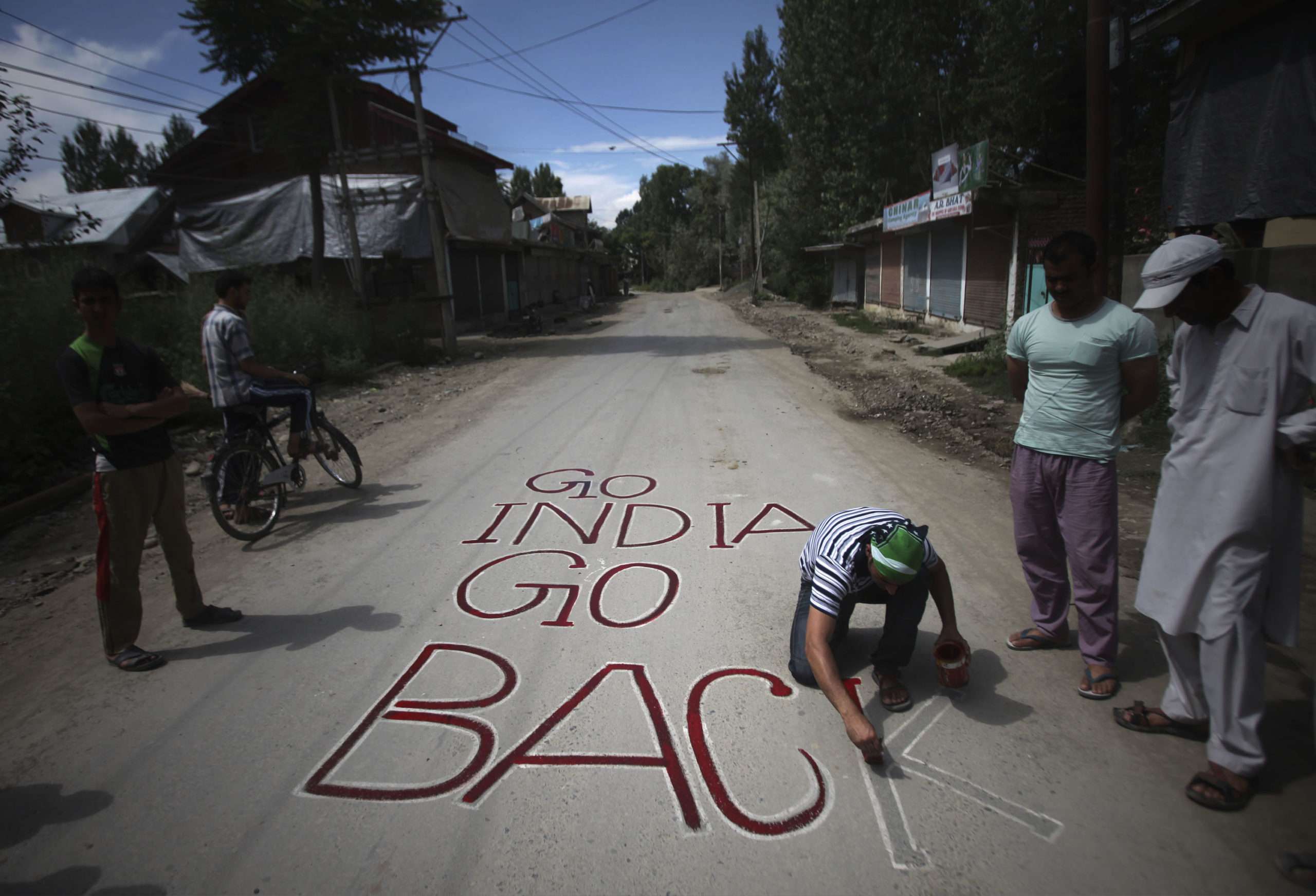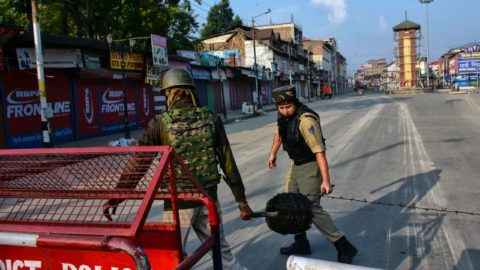On December 27th, Mirwaiz Muhammad Umar Farooq, was barred from leaving his house to lead…
Indian State Targets Kashmiri Muslim Employees in Latest Crackdown, Labels Resistance as Narco-Terrorism
On August 3rd, the Jammu and Kashmir administration, under the leadership of Hindu-nationalist Lieutenant Governor Manoj Sinha, terminated the services of six Kashmiri Muslim employees, including five policemen and a teacher, citing alleged financial support to Kashmiri self-determination movement through drug sales.
According to an official source, the administration invoked Article 311(2)(c) of the Indian Constitution to justify these dismissals.
The law, which has faced criticism from free speech advocates, concerns the dismissal or demotion of individuals employed in civil positions under the Union or a State. Originally intended to protect employees from unjust dismissals by their superiors, rights activists argue that its sweeping powers have been exploited by the state to suppress free speech and dissent.
Under sub-clause (c) of Clause 2 of Article 311, the government has the authority to dismiss an employee without conducting an inquiry if the President or Governor believes that holding such an inquiry would not be in the best interest of state security. Activists contend that this law undermines the principles of justice by denying employees the opportunity to contest or respond to their termination.
These actions are part of a broader strategy by the Indian state to suppress any form of dissent in Kashmir under the pretext of combating “narco-terrorism.” The narrative presented by the authorities claims that these employees were involved in a network allegedly run by Pakistan’s ISI and militant groups. However, this move fits within a well-documented pattern of the Indian government using draconian measures to silence those who are perceived as threats to its occupation of Kashmir.
The termination of these employees is not an isolated incident but part of a larger campaign to target Kashmiris under the guise of national security. By labeling them as participants in a “narco-terror” network, the administration seeks to further delegitimize the Kashmiri struggle for self-determination, branding resistance as criminal and terroristic.
More than 50 government employees in Indian-occupied Kashmir have been terminated from their services since 2019 on vague charges of being a “threat” to the security of the state.





